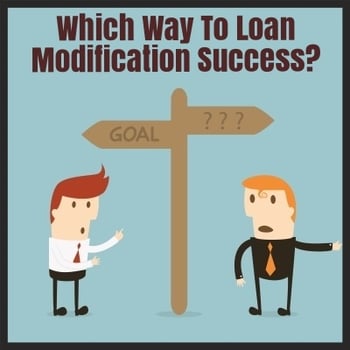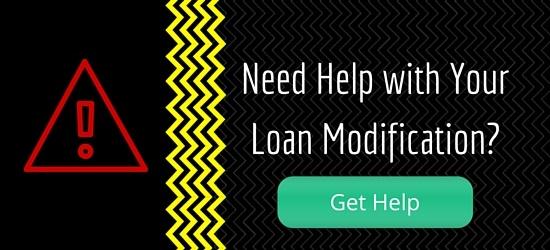 As a result of the ongoing housing crisis, mortgage loan modifications have become popular with distressed homeowners who need to reinstate their loan and get a more affordable payment. But not everyone who could benefit from modifying their mortgage understands what's actually involved and how to go about getting one. And some assume or have been told incorrect information.
As a result of the ongoing housing crisis, mortgage loan modifications have become popular with distressed homeowners who need to reinstate their loan and get a more affordable payment. But not everyone who could benefit from modifying their mortgage understands what's actually involved and how to go about getting one. And some assume or have been told incorrect information.
What is a Loan Modification
A mortgage loan modification is a permanent change to one or more of the terms of your existing loan, such as the interest rate, term length, and principal balance. The purpose is to lower the monthly payment to an affordable portion of your income and allow you to avoid foreclosure. It is different from a refinance, which replaces your old loan with a completely new one.
Loan modifications are the only hope many people have for avoiding foreclosure and staying in their home. However, there are some common misconceptions, such as:
1. It's not relevant because I can't afford to keep the home anyway.
It's possible that you won't be able to keep your home if your income is insufficient or nonexistent. To get an idea if you have a realistic chance of keeping your home or not, see what your mortgage payment would be if the balance of your loan were refinanced at 2% APR for 40 years, which is the best case scenario for having the lowest monthly payment. Your bank will want your payment to represent 31% of your income. If your income is close to being enough to afford your payment, you could get a part-time job, even temporarily, to get approved for a loan modification. And there are ways to count income you may already have. If your income isn't anywhere near enough to afford your mortgage with the most favorable terms, then you probably won't be able to keep the home. In that case, you should consider a short sale or deed in lieu of foreclosure.
2. I have to be late on my mortgage payments to apply.
No you don't, but you do have to show a valid financial hardship to get a loan modification. You'll probably have a harder time getting approved when you're not behind on payments, but it is not required.
3. I'm not eligible because I don't have good enough credit.
You don't need a credit score for a loan modification and it doesn't cost anything to apply. This is very different from refinancing, which requires a credit check and incurs thousands of dollars in closing costs.
4. I'm definitely going to get my principal reduced.
It's possible to get a principal reduction, but it's not a guaranteed outcome. You should use caution when dealing with anyone who claims that they can get you a principal reduction as well as with anyone who guarantees that they can get you a loan modification. Experienced professionals can say that, based on their experience, they believe you have good odds of getting modified, but they can't guarantee it.
5. The bank denied my application, so I have to look at other options.
Hold the phone! By some estimates more than 90% of homeowners who apply on their own are denied. The bank usually denies applicants because their income is either too low to afford the property or high enough that they should be able to afford it without any help. You should not necessarily give up just because you were denied. If the bank says your income is too low, you may be able document income you're already receiving even it's something you don't report to the IRS. Some people have family living with them who pay rent or help with utilities, or an off-the-books part time job like dog walking or babysitting. That counts as income. Even $30 a month could make the difference between approval and denial.
Homeowners who are self-employed often have a hard time convincing the bank that they deserve a loan mod. There is some flexibility in the way profits, losses, and business expenses are calculated. That flexibility can work to your advantage if you know what the bank needs to see and how to show it. A little bit of knowledge goes a long way.
6. Bankruptcy is the only way out.
Declaring, or suggesting that you'll declare bankruptcy can stop foreclosure proceedings, but it should often be a last resort. A bankruptcy lawyer should not be your first option when you have mortgage problems since they may guide you toward bankruptcy when other options remain open to you.
If you've experienced a financial hardship that caused you to default on your mortgage, you need to take some kind of action. After being 90 days late, the bank won't even take your payment. A loan modification is the best way to get your loan back to normal servicing and have a more affordable payment. The services of an attorney who focuses their practice on this area of the law can be very helpful in getting a loan modification.
Remember that the government's Home Affordable Modification Program (HAMP) is set to expire at the end of 2016. It can take from three to six months or more to get approved for a loan modification. So, if you want to keep your home, it's in your best interest to act as soon as possible.
Image courtesy of jumpe at FreeDigitalPhotos.net










